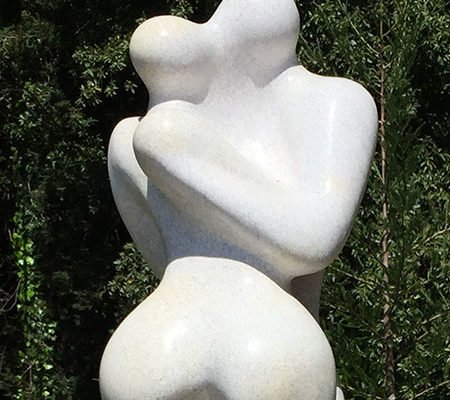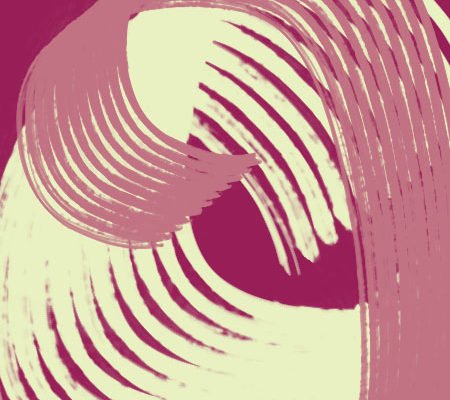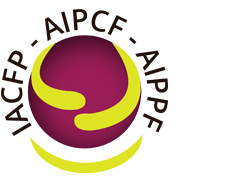 https://aipcf.net/wp-content/uploads/2017/02/couple-1.jpg
450
450
AIPCF
http://aipcf.net/wp-content/uploads/2017/02/logo-aipcf11.png
AIPCF2017-04-03 00:54:532017-05-11 15:00:13Theory and technique of couple psychoanalysis
https://aipcf.net/wp-content/uploads/2017/02/couple-1.jpg
450
450
AIPCF
http://aipcf.net/wp-content/uploads/2017/02/logo-aipcf11.png
AIPCF2017-04-03 00:54:532017-05-11 15:00:13Theory and technique of couple psychoanalysisCouples and Family Psychoanalytical Therapy Models
The soma is individual; the psyche is essentially a group
Gérard Dechef (Sceaux France) and André Ruffiot (Grenobrle, France)
Family Psychoanalytic therapy is an adaptation of the individual psychoanalytic process to the group. As such it rests on the basic Freudian underpinnings (abstinence, neutrality, and dream-work) all the while adding to the frame the necessary elements to welcome a group (the necessity of a bi-generational presence).
It’s creation dates back to the 1970’s and arose as a result of clinical reflections relating to the nature of the psychic suffering of the family group, behavioral and psychosomatic…and these often in relation to unelaborated trans-generational difficulties. We needed to move away from the systemic, and later one the behavioral-cognitive approaches, that we felt failed to consider the unconscious dimension of family functions.
Based on a central theoretical postulate, the practical and conceptual development of PFT leads us to envisage a significant breadth of specific groupal indications: the existence of a familial psychic apparatus at the core of all psychic individuality (the ‘us ‘ precedes the I- the latter is considered as having corporal roots)) The Treatment of difficult clinical cases (psychoses, anorexia, addictions, borderline pathologies, perversions) would necessarily be addressed by dealing with the entire family group.
During sessions, patients are encouraged to free associate, to say whatever comes to mind in the double perspective of linking and of representing the original familial organizational fantasies. The frame as presented permits the work of symbolization that is indispensable to address the familial suffering. This process is sustained by the transference onto the neo-group (family and therapists). Family dysfunctions relating to the familial psyche (failure to contain, confused parenting) are re-experienced in the transference with the therapeutic group. This collective psychic journey authorizes Individual psychic autonomy and the resurgence of a more functional mytho poetic activity The caring transitional space fosters such processes that are essential to every family’s psychic equilibrium. Each person can gradually internalize a self-parenting function rooted in the therapeutic function.
The future will likely reveal that a family based analytic approach is necessary to treat mental problems (even organic ones).
Bibliography
G. Decherf, E. Darchis (2000) Aspects cliniques de la fonction parentale in Rivage, n°12.
G. Decherf, L. Knera, E. Darchis (2003) Souffrances dans la famille, Paris, In Press.
A. Eiguer (1983) Un divan pour la Famille, Paris, Le centurion.
A. Eiguer, E. Granjon, A. Loncan (2006) La part des ancêtres Paris, Dunod.
F. André (1986) L’enfant insuffisamment bon, Lyon, PUL.
E. Granjon (2006) Le néo groupe in Le Divan Familial, Paris, In press.
C. Joubert, F. Fustier (1999) A la recherche de la mémoire familiale, Le Divan Familial, Paris, In Press.
R. Kaës et al. (1993) Transmission de la vie psychique entre générations, Paris, Dunod.
A. Ruffiot et al. (1981) La thérapie familiale psychanalytique, Paris, Dunod.
S. Tisseron et al. (1995) Le psychisme à l’épreuve de générations, clinique du fantôme. Paris, Dunod.
See also :
 https://aipcf.net/wp-content/uploads/2017/02/couple-1.jpg
450
450
AIPCF
http://aipcf.net/wp-content/uploads/2017/02/logo-aipcf11.png
AIPCF2017-04-03 00:54:532017-05-11 15:00:13Theory and technique of couple psychoanalysis
https://aipcf.net/wp-content/uploads/2017/02/couple-1.jpg
450
450
AIPCF
http://aipcf.net/wp-content/uploads/2017/02/logo-aipcf11.png
AIPCF2017-04-03 00:54:532017-05-11 15:00:13Theory and technique of couple psychoanalysis https://aipcf.net/wp-content/uploads/2017/02/couple-4.jpg
450
450
AIPCF
http://aipcf.net/wp-content/uploads/2017/02/logo-aipcf11.png
AIPCF2017-04-03 00:52:492017-05-11 15:02:41Psychoanalytic psychotherapy of the couple and attachment
https://aipcf.net/wp-content/uploads/2017/02/couple-4.jpg
450
450
AIPCF
http://aipcf.net/wp-content/uploads/2017/02/logo-aipcf11.png
AIPCF2017-04-03 00:52:492017-05-11 15:02:41Psychoanalytic psychotherapy of the couple and attachment https://aipcf.net/wp-content/uploads/2017/02/Modeles3.jpg
450
450
AIPCF
http://aipcf.net/wp-content/uploads/2017/02/logo-aipcf11.png
AIPCF2017-04-03 00:50:522017-05-11 15:05:21The place and the practice of CFPT prenatally (before and after birth)
https://aipcf.net/wp-content/uploads/2017/02/Modeles3.jpg
450
450
AIPCF
http://aipcf.net/wp-content/uploads/2017/02/logo-aipcf11.png
AIPCF2017-04-03 00:50:522017-05-11 15:05:21The place and the practice of CFPT prenatally (before and after birth) https://aipcf.net/wp-content/uploads/2017/02/COUPLE-2.jpg
450
450
AIPCF
http://aipcf.net/wp-content/uploads/2017/02/logo-aipcf11.png
AIPCF2017-04-03 00:44:402017-05-11 15:06:24Psychoanalytic Intervention models with the parental couple
https://aipcf.net/wp-content/uploads/2017/02/COUPLE-2.jpg
450
450
AIPCF
http://aipcf.net/wp-content/uploads/2017/02/logo-aipcf11.png
AIPCF2017-04-03 00:44:402017-05-11 15:06:24Psychoanalytic Intervention models with the parental couple https://aipcf.net/wp-content/uploads/2017/02/Modeles5.jpg
450
450
AIPCF
http://aipcf.net/wp-content/uploads/2017/02/logo-aipcf11.png
AIPCF2017-04-03 00:42:422017-05-11 15:08:28The model of Interfantasmatization. The Relational Psychic Apparatus in families, couples and groups.
https://aipcf.net/wp-content/uploads/2017/02/Modeles5.jpg
450
450
AIPCF
http://aipcf.net/wp-content/uploads/2017/02/logo-aipcf11.png
AIPCF2017-04-03 00:42:422017-05-11 15:08:28The model of Interfantasmatization. The Relational Psychic Apparatus in families, couples and groups. https://aipcf.net/wp-content/uploads/2017/05/Famille-1.jpg
500
500
AIPCF
http://aipcf.net/wp-content/uploads/2017/02/logo-aipcf11.png
AIPCF2017-04-03 00:40:442017-05-11 15:10:32Le groupe multi-familial psychanalytique (G.M.F.P.)
https://aipcf.net/wp-content/uploads/2017/05/Famille-1.jpg
500
500
AIPCF
http://aipcf.net/wp-content/uploads/2017/02/logo-aipcf11.png
AIPCF2017-04-03 00:40:442017-05-11 15:10:32Le groupe multi-familial psychanalytique (G.M.F.P.) https://aipcf.net/wp-content/uploads/2017/02/couple3.jpg
450
450
AIPCF
http://aipcf.net/wp-content/uploads/2017/02/logo-aipcf11.png
AIPCF2017-04-03 00:38:472017-05-11 15:26:17The soma is individual; the psyche is essentially a group
https://aipcf.net/wp-content/uploads/2017/02/couple3.jpg
450
450
AIPCF
http://aipcf.net/wp-content/uploads/2017/02/logo-aipcf11.png
AIPCF2017-04-03 00:38:472017-05-11 15:26:17The soma is individual; the psyche is essentially a group https://aipcf.net/wp-content/uploads/2017/02/Modeles8.jpg
450
450
AIPCF
http://aipcf.net/wp-content/uploads/2017/02/logo-aipcf11.png
AIPCF2017-04-03 00:35:542017-05-11 15:22:20Specific nature of our model within the context of PCFT: Field link and co therapy using psychoanalytic psychodrama.
https://aipcf.net/wp-content/uploads/2017/02/Modeles8.jpg
450
450
AIPCF
http://aipcf.net/wp-content/uploads/2017/02/logo-aipcf11.png
AIPCF2017-04-03 00:35:542017-05-11 15:22:20Specific nature of our model within the context of PCFT: Field link and co therapy using psychoanalytic psychodrama. https://aipcf.net/wp-content/uploads/2017/02/lolo_ipi.gif
148
177
AIPCF
http://aipcf.net/wp-content/uploads/2017/02/logo-aipcf11.png
AIPCF2017-02-22 11:23:312017-05-11 15:24:48IPI’s way of working
https://aipcf.net/wp-content/uploads/2017/02/lolo_ipi.gif
148
177
AIPCF
http://aipcf.net/wp-content/uploads/2017/02/logo-aipcf11.png
AIPCF2017-02-22 11:23:312017-05-11 15:24:48IPI’s way of working




